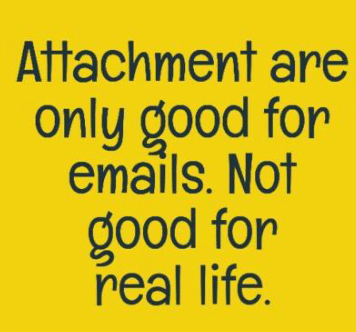Recently Amit, a friend of mine, quit his job at a consulting firm.
Amit had been outstanding not just as a consultant but also as a team player.
Clients loved him, as did colleagues. He doubled up as a shrink for his clients. He went out of his way to help colleagues. He bagged a few new clients for the firm even though he didn’t get a commission.
At his farewell, everyone said nice things. They said they would miss him and promised to keep in touch.
But here’s what happened.
In less than 24 hours, Amit’s email access was revoked and he was removed from the Instant Messaging group (they had never been half as quick to give him support when he needed it). Within a week, the company moved to a new office and held a grand opening. But nobody informed him.
Things began to sour between the firm and some of Amit’s clients because the consultants who took up the projects were not capable enough. But within the firm, word spread that these issues were Amit’s fault. The gossip was that he hid problems to make himself appear smarter.
Amit’s response to all this? He just shrugged. That’s how he is. He gives 100 percent to everything he does and then moves on.
But most would not have responded like that. We would’ve been livid. We would’ve expected people to tell us how things are falling apart without us, not blame us for others’ incompetence.
“Why Haven’t They Called Me Yet!”
Work is not the only place where we experience this.
We wait for friends we stop hanging out with to tell us how much they miss us. We wait for our ex to text or call and tell us how miserable they are without us.
When we don’t hear from them, we secretly stalk their social media profiles. It becomes difficult to digest the fact that they can have fun without us. While waiting for their lives to turn miserable without us, we make our lives miserable.

Here’s what really happens.
We get stuck. To things, relationships and events. Or rather, to our interpretations and feelings about them. Why?
It boils down to one thing — attachment. How much we attach our identity to the company, the friendship, or the relationship. The deeper our attachment, the more effort we put into it without pausing to assess our level of control in the situation.
The result is that we seek validation from what we’re attached to. We overestimate our importance in it and begin to believe that things can work well only when we get involved. And we channelize our energies in trying to control outcomes. But the harder we try to control something we cannot, the more we set ourselves up for disappointment and misery.
How to Stop Getting Attached

Two steps.
One, understand what’s in your control. And two, pursue meaning more than happiness.
Amit has an enviable attitude because he embodies both these principles.
He’s a follower of Stoicism, which states that the only aspects in your control are your perceptions, actions, and willpower. Nothing else. Not even your body, because you cannot control whether you’ll fall sick or injure yourself. But you have complete control over how you frame your thoughts at any time.
Amit told me that fussing over what people thought of him was outside his locus of control. He knew he had given the firm his best. What happened after he quit was none of his business.
Instead, he immediately directed his energy into things that were in his control. He took a vacation with his wife and upon returning, threw himself into working on a startup he had been planning for.
Amit wants to grow slowly. He doesn’t want to commit the mistakes he saw the consulting firm and his clients make. He has a clear picture of how he wants his venture to function in the long run. The startup and his family add meaning to his life.
There’s a difference between happiness and meaning.
While happiness can come from feeling good when others validate us, meaning comes from contributing to others or to society in a bigger way.
Happiness that comes from external validation disappears just as quickly. But pursuing something that adds meaning to our lives always leads to long-lasting happiness.
Summing Up
Life expects something from you — to know the “why” of your existence.
Let your “why” not be about pleasing others or living for them.
Let it be something that makes you feel satisfied at the end of the day even if the results are not in your favor, something that makes you look forward to the next day.
You will be forgotten when you leave. Chasing recognition and appreciation for your efforts will keep you stuck in the past and make you miserable. Chasing meaning will move you forward.
Do your action and move on. The fruit is not in your control. There’s nothing you can do to change that. Accepting this will save you a lot of heartburn.
Take care of yourself — physically, emotionally and mentally. To help others lead a better life, you must start with the person in the mirror.


